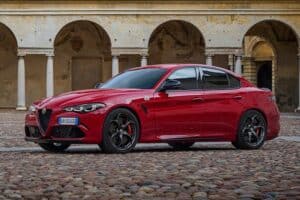Expected price premium over petrol powered offerings might not justify their better fuel economy.

In the quest to produce new energy vehicles, many manufacturers have taken a straight route from cars with internal combustion engines (ICE) to all-electric vehicles (EV).
And in between ICE and EVs lies an area some carmakers believe will play an important role in the immediate future. One of those carmakers is Renault.
In addition to its EV programme, the French manufacturer has also been developing more practical hybrid solutions it refers to as E-tech. The E-tech system came to fruition over a decade ago through Renault’s development of a hybrid powertrain for 2014 Formula One season.
Renault South Africa is bringing in two of its E-tech hybrids by mid-2024; the coupe-styled Arkana SUV, which will make its local debut, along with the familiar Captur compact crossover/SUV.
Renault marries mill and motor
The hybrids are powered by a combination of a 1.6-litre four-cylinder petrol engine and two electric motors. One for traction and the other an alternator starter.
The mill makes 67 kW of power and 148 Nm of torque on its own, with an e-engine providing 36 kW and a high-voltage starter motor an additional 15 kW.
The e-engine is connected to a self-charging 1.2 kWh battery, which means no external charging is required. Charging is done by the petrol engine at lower speeds along with regenerative braking.
As far the transmission goes, mechanical synchronisers has been replaced by what Renault calls a “dog clutch” gearbox. It says these gives precise control of electric machinery and features 15 combinations.
ALSO READ: Captur your inner driver with Renault’s sporty compact SUV

City traffic fuel saver
The hybrid system constantly changes between all-electric, only petrol or a combination of the two, depending on the conditions.
Renault claims hybrid cars in city traffic will manage to drive for 80% on all-electric power. This is the result of the lower speeds and constant braking associated with it.
The big benefits of hybrid technology are lower carbon emissions and lower fuel consumption.
Renault says these cars have the potential to use up to 40% less fuel. And to put this to the test, Renault South Africa challenged the media to a unique endurance test at the Zwartkops International Raceway recently.
ALSO READ: WATCH: Sexy Renault Captur has curves in all the right places
Hybrid vs petrol power
The Citizen Motoring and three team-mates were one of three teams each were given E-tech hybrids, two Arkanas and one Captur, to take around the 2.4 km track for eight hours; each driver getting two one-hour shifts.
These teams competed against a standard ICE Captur, piloted by the organisers. The objective was to complete as many laps as possible using the least amount of fuel. As there were no ICE Arkanas, the real battle was between the two Capturs.

The hybrid Captur won, even with a penalty for completing 245 laps (585 km) compared to ICE Captur’s 247 (590 km).
There was a notable difference in fuel consumption with the ICE Captur recording 7.5 litres per 100 kilometres and the hybrid Captur 6.8 L/100 km, adjusted to 7.0 L /100 km after applying the fewer lap penalties.
ALSO READ: Capture some French flair and ooh la la with new Renault Captur
Renault faces big decision
This brings us to the big problem facing Renault South Africa in bringing these cars to market.
The government has been very slack in easing tax regulations for new energy vehicles.
Based on current legislation, the E-tech Captur will a lot more than the ICE models which start at R469 900. The premium won’t be justified by the fuel consumption.
But the world is moving ahead. The carmaker can’t wait forever to introduce new energy vehicles in a market that has started to move ahead.
Renault might still be saved by tax relaxation before the hybrids arrive. But they’re not holding their breath. It’s a classic case of damned if they do, damned if they don’t.
Support Local Journalism
Add The Citizen as a Preferred Source on Google and follow us on Google News to see more of our trusted reporting in Google News and Top Stories.






